Alstom has announced that it will be providing new-generation trams to French cities Toulouse, Brest and Besançon.
The company has been awarded a joint contract by the three transport authorities: Toulouse Métropole and Tisséo; Brest Métropole; and Grand Besançon Métropole and Ginko.

The group awarded Alstom with a framework agreement of eight years, including a minimum order of twenty-two trams: nine for Toulouse, eight for Brest, and five for Besançon.
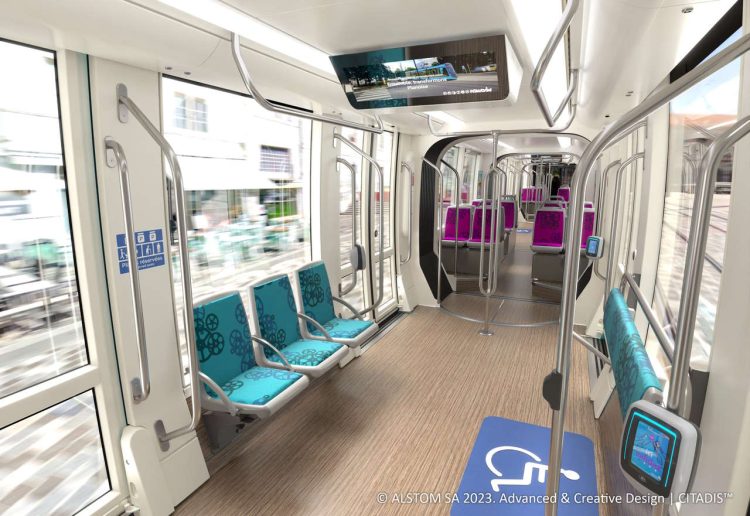
Other trams may be ordered during the period of the contract in order to meet the needs of the metropolitan areas’ transport services. The first deliveries will take place in Besançon in March 2025, with entry into service scheduled for September of the same year.
The first deliveries will follow for Brest in July 2025 and for Toulouse in January 2026 for commissioning in January 2026 and September 2026, respectively.
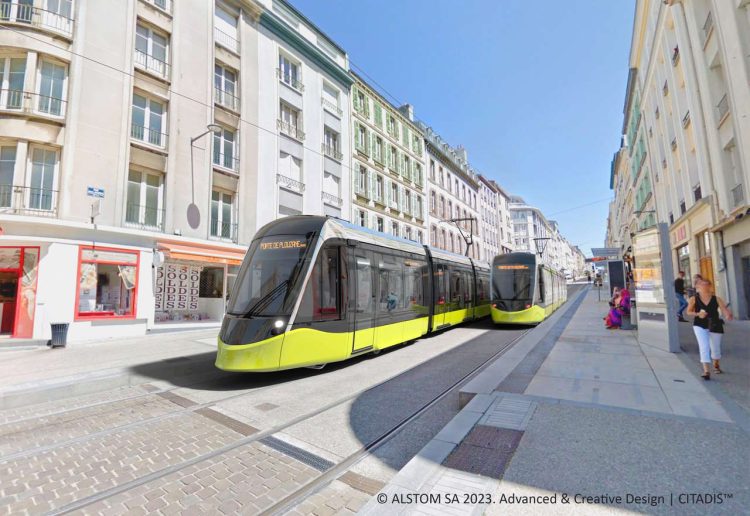
The three metropolitan areas jointly agreed the contract, aiming to optimise costs. Alstom’s teams relied on the Citadis portfolio, which benefits from the experience of more than three thousand tramsets already ordered in seventy cities in twenty countries around the world.
This includes twenty-four cities in France, most recently Strasbourg, as well as French-speaking Quebec in Canada. The new rolling stock will retain the iconic features and design elements of the trams currently in service in these cities.
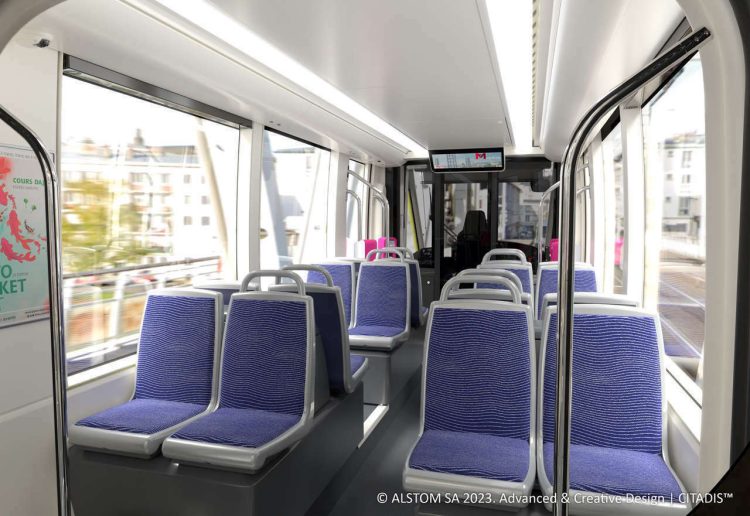
They are 32.5 metres long and 2.4 metres wide, and have four double doors of 1.30 metres and two single doors per side. They can carry 201 passengers and are equipped with fully glazed doors to enhance comfort and safety for passengers.
In compliance with the PMR (Persons with Reduced Mobility) regulation, the trams are equipped with door opening buttons at the appropriate height, wider seats and areas reserved for wheelchair users and pushchairs.
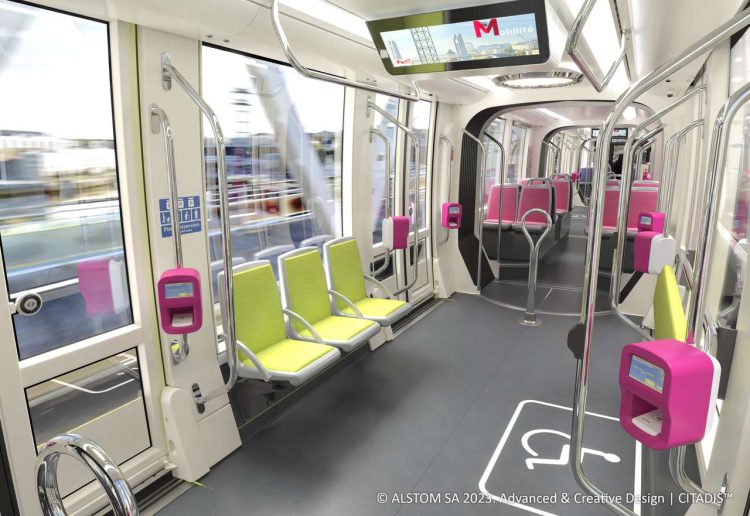
They are air-conditioned and equipped with a dynamic passenger information system as well as a video protection system.
The Citadis trams will reduce energy consumption by a quarter compared to the current trams, thanks to a new motorisation, efficient management of climatic comfort and fully LED lighting. The trams are eco-designed, 95% recyclable and 99% reusable.
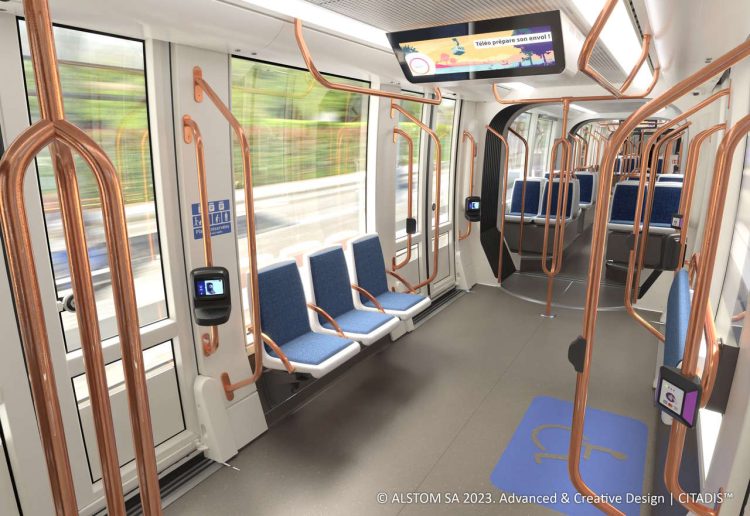
The new Citadis trams will also reduce maintenance operations by 18% during their thirty years of commercial operation. Maintenance requirements have been taken into account with a reduced number of spare part references, improved accessibility of components and sensors distributed throughout the tram to allow remote diagnosis, so anticipating periods of downtime and offering optimum availability for the commercial service.
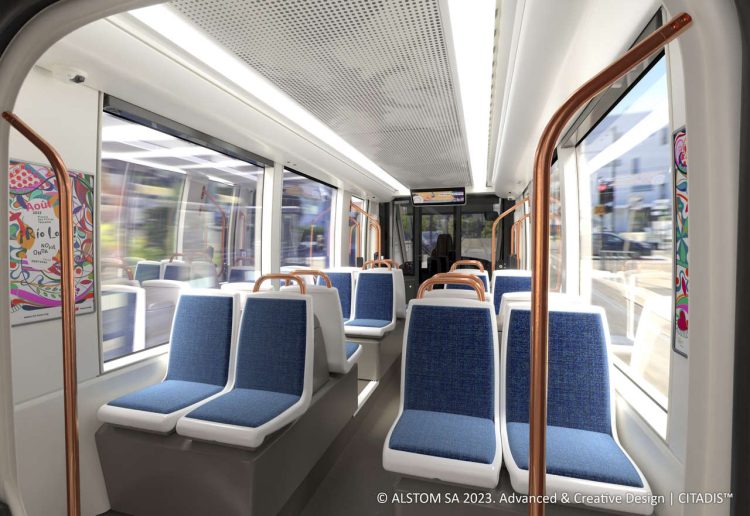
Nine Alstom sites in France are involved in the manufacturing of these trams: La Rochelle, for design and assembly, Le Creusot, for the bogies, Ornans, for the motors, Villeurbanne, for on-board electronics and cyber security, Aix-en-Provence, for the tachometric units, Sens, Gennevilliers and Saint-Florentin, for brake discs and linings, and Saint-Ouen, for design.

Citadis trams have covered more than a billion kilometres and carried ten billion passengers since the first tram was put into service in 2000.






Responses